It’s the New Year and the festivities and indulgences are over. All I see and hear now on the media is diets, weight loss, exercise and detox.
I don’t believe in short-term diets. They can do more harm than good. I believe in using good nutrition to support the body’s own processes to digest, absorb and eliminate the food we eat, enabling the body to use nutrients and stay in good health.
And Detox is not just for January! The liver is the most important organ for detox. Detoxification is simply the safe removal of toxic substances from the body. The liver constantly detoxifies the body 24/7 and it is mostly very efficient at it.
So what are the toxic substances that the liver has to deal with?
Food additives, food metabolism byproducts, alcohol, pharmaceutical and recreational drugs, toxic chemicals from the environment, and the bodies own natural waste from its biochemical processes (excess hormones, spent cells and molecules that have performed their role. These together form a ‘toxic load’.
Sometimes the toxic load can exceed the amount the liver can deal with and symptoms may occur throughout the body such as hormonal imbalance, low energy, DNA damage, and skin eruptions.
How you can help the detox process: Consume a daily diet that includes proteins, antioxidants, B vitamins, fibre, and trace minerals. They all take part in reactions and conversions for the elimination of toxins through the bowels and the kidneys.
It is important to eat a diet containing plenty of fruit and vegetables – these can be in the form of a smoothie but NOT juice as you don’t want to eliminate fibre. Insoluble fibre from the fruit, vegetables, wholegrains, nuts and seeds help speed up the elimination of solid waste products including the toxins through the bowel taking.

‘Eat the rainbow‘; eating a variety of coloured fruit and veg will ensure a good mix of antioxidants along with vitamins A, C and vitamin E (from nuts and seeds). These antioxidants quench free radicals that can damage cells. Free radicals are a byproduct of the liver’s processing but there are other sources from the rest of the body.
Protein is needed for a source of amino acids that make up the enzyme proteins which perform the detoxification processes. Protein from meat, eggs and dairy sources will provide amino acids, vitamin A and some B vitamins too. Dark leafy vegetables, beans and pulses are also a good source of B vitamins. Good vegan sources of protein are quinoa and other grains, nuts, seeds, beans and pulses, and tofu.
Eating a good and varied diet from organic sources where possible, which is high in vegetables, fruit and unprocessed foods, will provide all the nutrients you should require to stay healthy without the need for expensive supplements.
It is also important to drink enough water, any waste directed through the kidneys needs to be flushed out. 6-8 glasses (1.5-2litres in total) of filtered water throughout the day should be sufficient. Too much water may dilute essential minerals.

Exercising– yes it’s great for increasing energy levels, lowering blood sugar, toning the body and weight loss, but did you know it is also good for shaking up the lymph system. It doesn’t have a pump like the blood system so it can become a little stagnant. Lymph carries cells for the immune system and fatty metabolites from food, so it’s good to keep it moving. Sweating is also a detoxification process – the skin can eliminate toxins this way. So exercise and break a sweat! Or get in a sauna. Sweating will also secrete some minerals so it is important that these are replaced with a good diet and remember to rehydrate.

Exercising encourages the breakdown of fat stored around the body. This can temporarily increase the toxic load as many toxins are stored with the fat and then released as the fat is broken down.
Remember- that detoxing is not just for January, it is important the liver is supported with the nutrients it needs everyday.
The following recipes from the recipe blog contain nutrients that can help the liver.
Roasted Butternut Squash and Tomato Soup
(Please consult a doctor or healthcare practitioner if you have any concerns about your health.)

